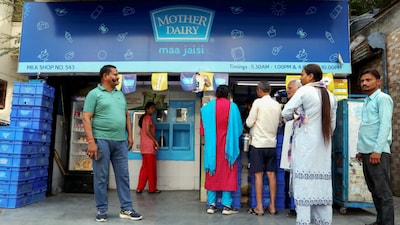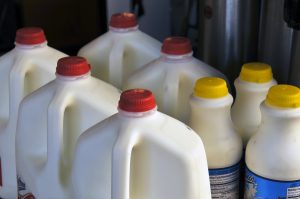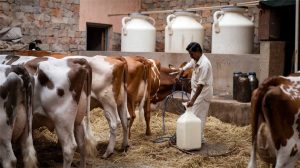
A new government policy on GST is set to lower milk prices for millions of consumers and redefine the nation’s agribusiness landscape.
A major shift in government policy is set to have a direct and immediate impact on the dairy industry in India. The article from News18 reports that the GST Council has decided to exempt packaged milk from a 5% GST, a move that will provide immediate relief for consumers. This significant change is a strong signal from the government that it is actively using policy to address everyday economic challenges, with a direct influence on the entire food supply chain and its participants.
The primary motivation behind this decision is to make milk, a staple commodity, more affordable for families navigating a period of rising inflation. By removing the 5% tax, the government aims to ensure that every family has access to cheaper and high-quality milk. This action is a clear example of a government intervention designed to benefit common consumers directly. It also provides a valuable piece of data journalism for the international community, illustrating how policy can be used to manage consumer-facing markets.
The article details the specific impact of the new policy, providing a glimpse into the price changes for major brands. Current prices for brands like Amul and Mother Dairy, including products like full cream and toned milk, are expected to drop by approximately Rs 3 to 4 per litre. The report gives specific examples, such as Amul Gold, which will fall from around Rs 69 to Rs 65-66, and Mother Dairy’s full cream milk, which is anticipated to fall within a similar range.
This move is a vital development for producers and analysts in dairy economics. By making milk more affordable, the government is likely to stimulate consumer demand, which could have a positive ripple effect throughout the entire supply chain, from farmers to processors. This strategic decision showcases how a tax adjustment can be leveraged as a tool to support both consumer purchasing power and the health of the broader agribusiness sector in a major market.
Ultimately, this policy change represents a significant turning point for the Indian dairy industry. The new GST-free rates for all packaged milk products are set to come into effect on September 22, 2025. This concrete deadline gives producers and manufacturers a clear timeline to adjust their pricing. For the international dairy community, this is a clear example of how government policy can directly influence market stability, consumer behavior, and the profitability of a vital national food supply chain.
Source: News18, “Mother Dairy, Amul Milk Prices: Revised Rate Card May Look Like This From September 22”
You can now read the most important #news on #eDairyNews #Whatsapp channels!!!
🇮🇳 eDairy News ÍNDIA: https://whatsapp.com/channel/0029VaPidCcGpLHImBQk6x1F

















